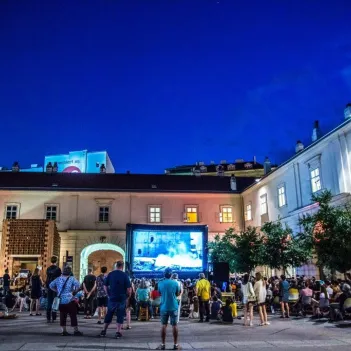POSEIDON
POSitive Energy Initiatives in Districts fOr Neutral mediterranean cities

- Category
- Project
- Call
- DUT Call 2022
- Duration
- –
- Project coordinator
- Polytechnic University of Madrid
POSEIDON tackles the challenge of enabling the transition of existing Mediterranean districts into Positive Energy Districts (PEDs), by combining solutions that address energy, environmental and social aspects of district sustainability. While PEDs are key to climate neutrality goals, their implementation remains limited due to technical, social, regulatory, and governance barriers. Most existing projects focus narrowly on energy systems or building retrofitting, overlooking integrated approaches that include public space, citizen participation, and local planning needs. POSEIDON addresses this gap by developing a methodology tailored to the Mediterranean context, where urban morphology, social practices, and climate pose unique constraints and opportunities. The project seeks to align PED design with broader goals of inclusiveness, affordability, and urban resilience.
POSEIDON proposes a seven-step methodology to support the development of three tools: a GIS-based MCDA for district selection, a decision-support software (POSEIDON Tool) for technical design and simulation, and the POSEIDON Lab, a participatory platform to engage citizens and local stakeholders. The methodology is being applied and tested in the specific needs and context of six Mediterranean cities: Alcorcón, Antalya, Cascais, Cesena, Marseille, and Rome. Through co-creation processes and integrated urban planning, POSEIDON enables local authorities to generate feasible, citizen-approved transition scenarios. These are complemented by guidelines, governance schemes, and replicability frameworks, supporting informed decision-making and fostering capacity building at municipal level.
POSEIDON will deliver a transferable methodology, software tool, and participatory model to support PED design and implementation in Mediterranean cities. Impacts include better integration into local planning, increased readiness, and greater public acceptance of energy transition measures. The project will also enhance PED replicability through transition scenarios and policy toolkits, fostering municipal collaboration. Key benefits include improved energy efficiency, citizen empowerment, climate resilience, and reduced GHG emissions at district scale.
Italy
Portugal
Spain
Türkiye
De Surdurulebilir Enerji Ve Insaat Sanayi Ticaret Limited Sirketi, Grupo Impacte Planificación Urbana Sl, Universita Degli Studi Roma Tre, Ville de Marseille, Wonderland - Platform For European Architecture
Antalya Metropolitan Municipality, Ayuntamiento de Alcorcon, Comune di Cesena, Emac Empresa Municipal de Ambientede Cascais Em SA, Municipio de Cascais, Roma Capitale
Contact
projectspace@wonderland.cx